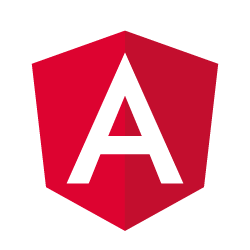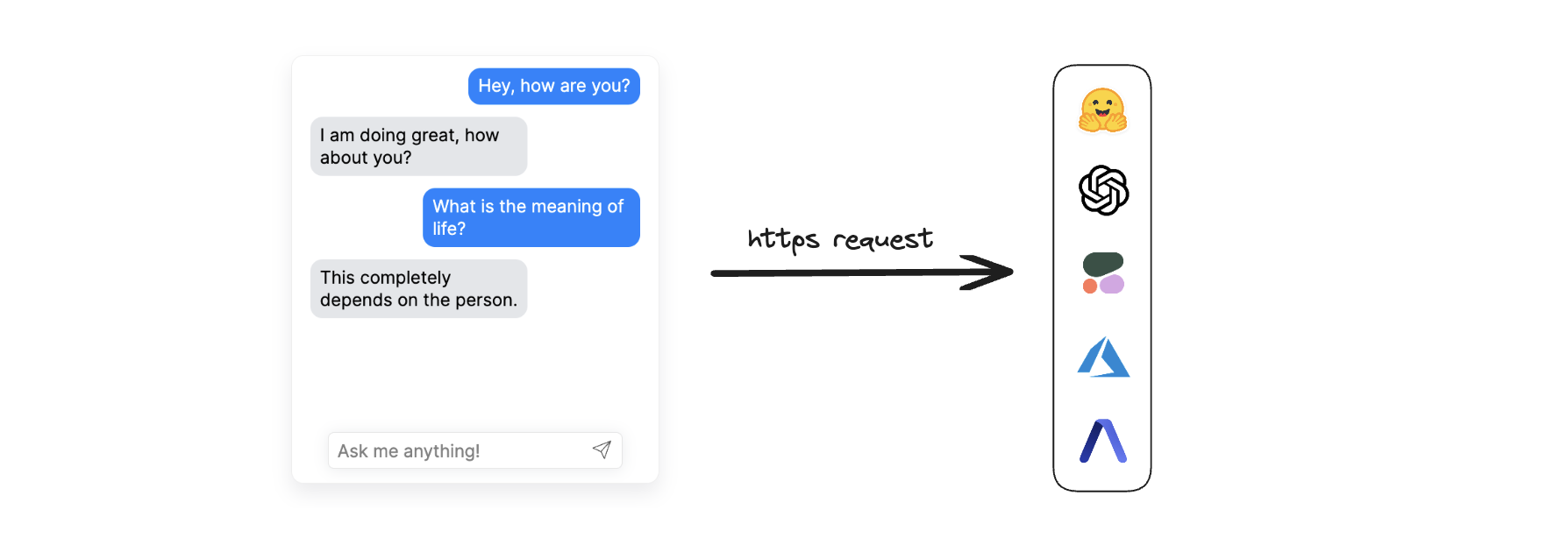Deep Chat is a fully customizable AI chat component that can be injected into your website with just one line of code. Whether you want to create a chatbot that leverages popular APIs such as ChatGPT or connect to your own custom service, this component can do it all! Explore deepchat.dev to view all of the available features, how to use them, examples and more!
- Connect to any API
- Avatars
- Names
- Send/Receive files
- Capture photos via webcam
- Record audio via microphone
- Speech To Text for message input
- Text To Speech to hear message responses
- Support for MarkDown and custom elements to help structure text and render code
- Introduction panel and dynamic modals to help describe functionality for your users
- Connect to popular AI APIs such as OpenAI, HuggingFace, Cohere directly from the browser
- Communicate with Speech to Speech models
- Support for all major ui frameworks/libraries
- Host a model on the browser
- Focus mode to display only the latest messages
- Everything is customizable!
npm install deep-chat
If using React, install the following instead:
npm install deep-chat-react
Simply add the following to your markup:
<deep-chat></deep-chat>
The exact syntax for the above example will vary depending on the framework of your choice (see here).
Connecting to a service is simple, all you need to do is define its API details using the connect property:
<deep-chat connect='{"url":"https://service.com/chat"}'/>
The service will need to be able to handle request and response formats used in Deep Chat. Please read the Connect section in documentation and check out the server template examples.
Alternatively, if you want to connect without changing the target service, use the interceptor properties to augment the transferred objects or the handler function to control the request code.
Connect to popular AI APIs directly from the browser via the use of the directConnection property:
<deep-chat directConnection='{"openAI":true}'/>
<deep-chat directConnection='{"openAI":{"key": "optional-key-here"}}'/>
Please note that this approach should be used for local/prototyping/demo purposes ONLY as it exposes the API Key to the browser. When ready to go live, please switch to using the connect property described above along with a proxy service.
Currently supported direct API connections: OpenAI, HuggingFace, Cohere, Stability AI, Azure, AssemblyAI
No servers, no connections, host an LLM model entirely on your browser.
Simply add the deep-chat-web-llm module and define the webModel property:
<deep-chat webModel="true" />
Use Deep Chat to capture photos with your webcam and record audio with the microphone. You can enable this using the camera and microphone properties:
<deep-chat camera="true" microphone="true" ...other properties />
https://github.com/OvidijusParsiunas/deep-chat/assets/18709577/e103a42e-b3a7-4449-b9db-73fed6d7876e
Input text with your voice using Speech To Text capabilities and have the responses read out to you with Text To Speech. You can enable this functionality via the speechToText and textToSpeech properties.
<deep-chat speechToText="true" textToSpeech="true" ...other properties />
Check out live codepen examples for your UI framework/library of choice:
| React | Vue 2 | Vue 3 | Svelte | SvelteKit | Angular | Solid | Next | Nuxt | VanillaJS |
|---|---|---|---|---|---|---|---|---|---|
 |
 |
 |
 |
 |
 |
 |
 |
Setting up your own server has never been easier with the following server templates. From creating your own service to establishing proxies for other APIs such as OpenAI, everything has been documented with clear examples to get you up and running in seconds:
| Express | Nest | Flask | Spring | Go | SvelteKit | Next |
|---|---|---|---|---|---|---|
 |
 |
 |
 |
 |
All examples are ready to be deployed on a hosting platform such as Vercel.
Demo videos are available on YouTube:
# Clone the project locally (optionally use --depth 1 for quicker download):
$ git clone --depth 1 https://github.com/OvidijusParsiunas/deep-chat.git
# Navigate to the /src directory and install node dependencies:
$ npm install
# Build the component:
$ npm run build
# Automatically build the component as soon as you make a change:
$ npm run build:watch
# Serve the component locally (from index.html):
$ npm run start
# Bundle the component into a single file (dist/deepChat.bundle.js):
$ npm run build:bundle
Thankyou to our generous sponsors!
Open source is built by the community for the community. All contributions to this project are welcome!
Additionally, if you have any suggestions for enhancements, ideas on how to take the project further or have discovered a bug, do not hesitate to create a new issue ticket and we will look into it as soon as possible!






